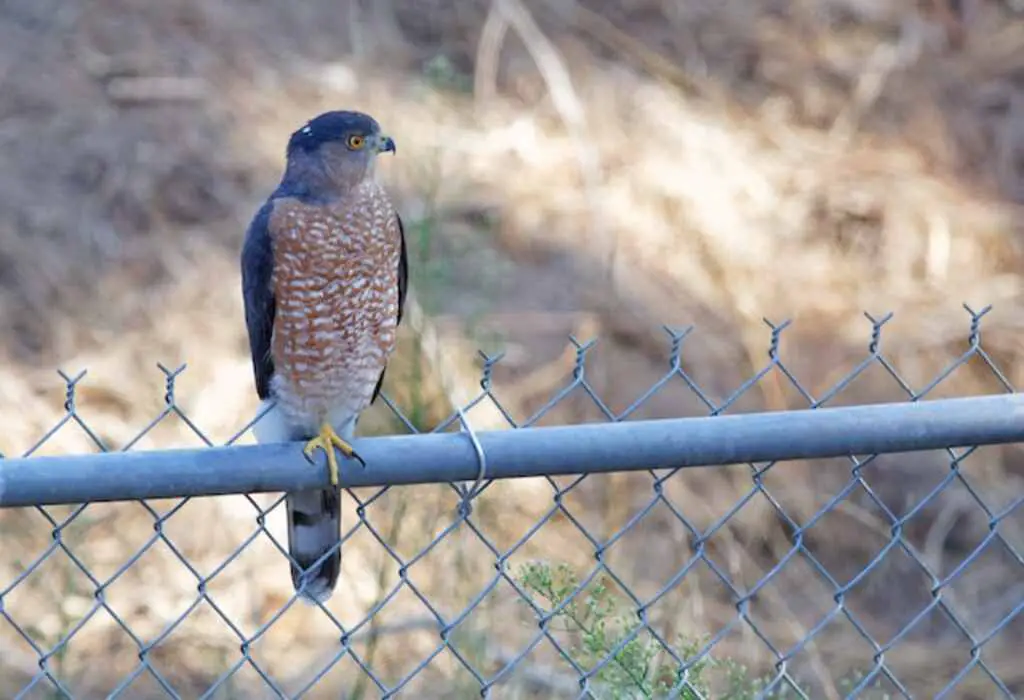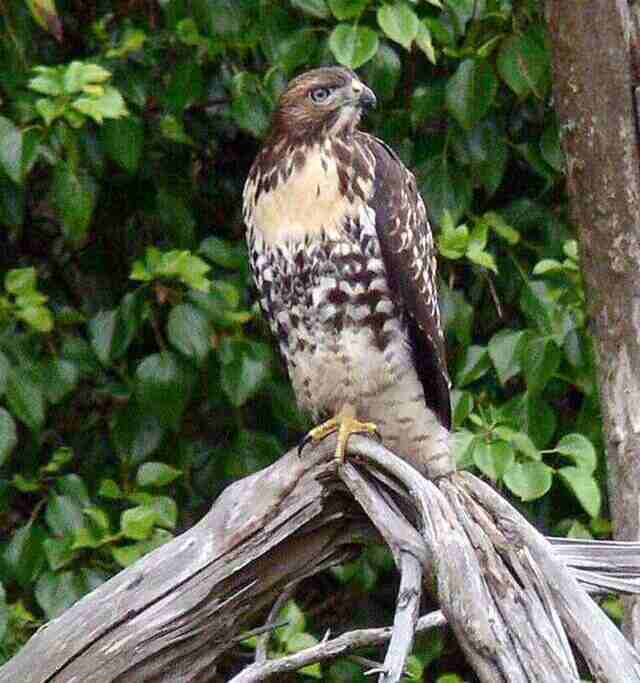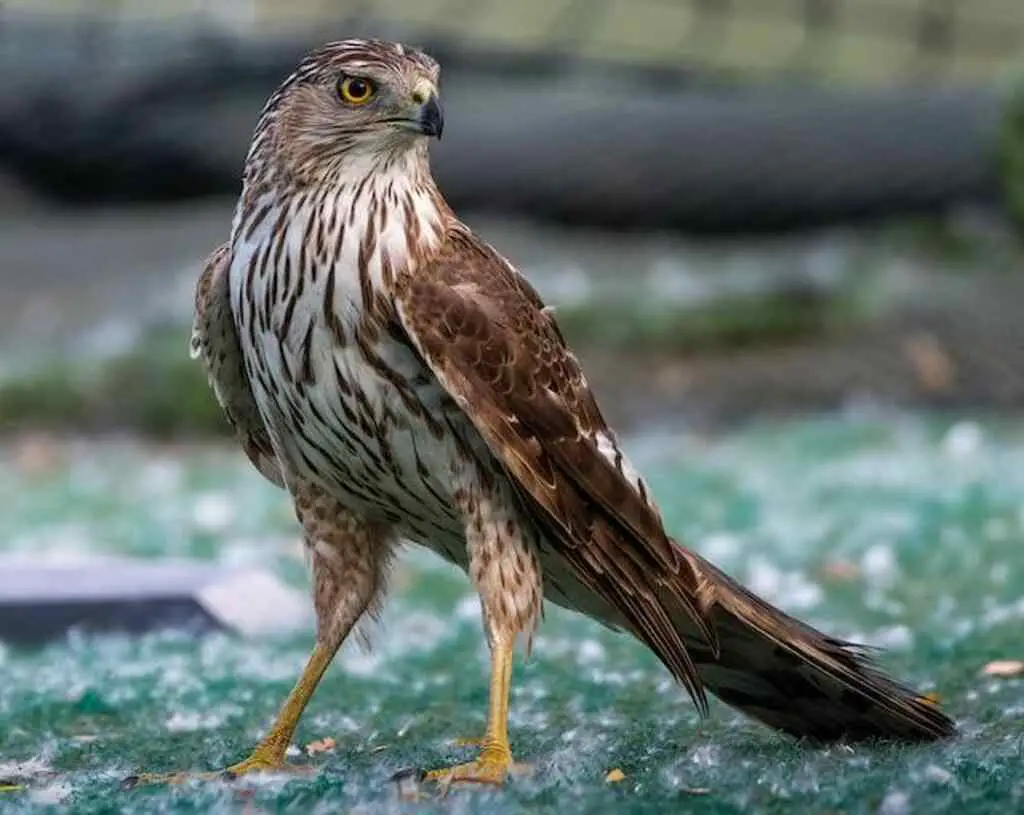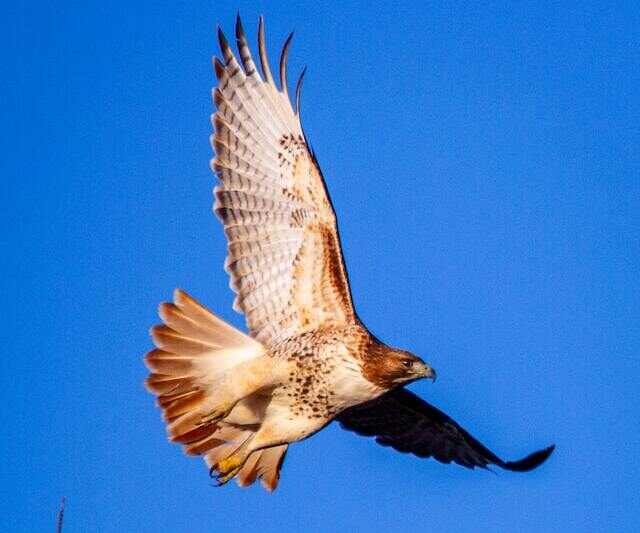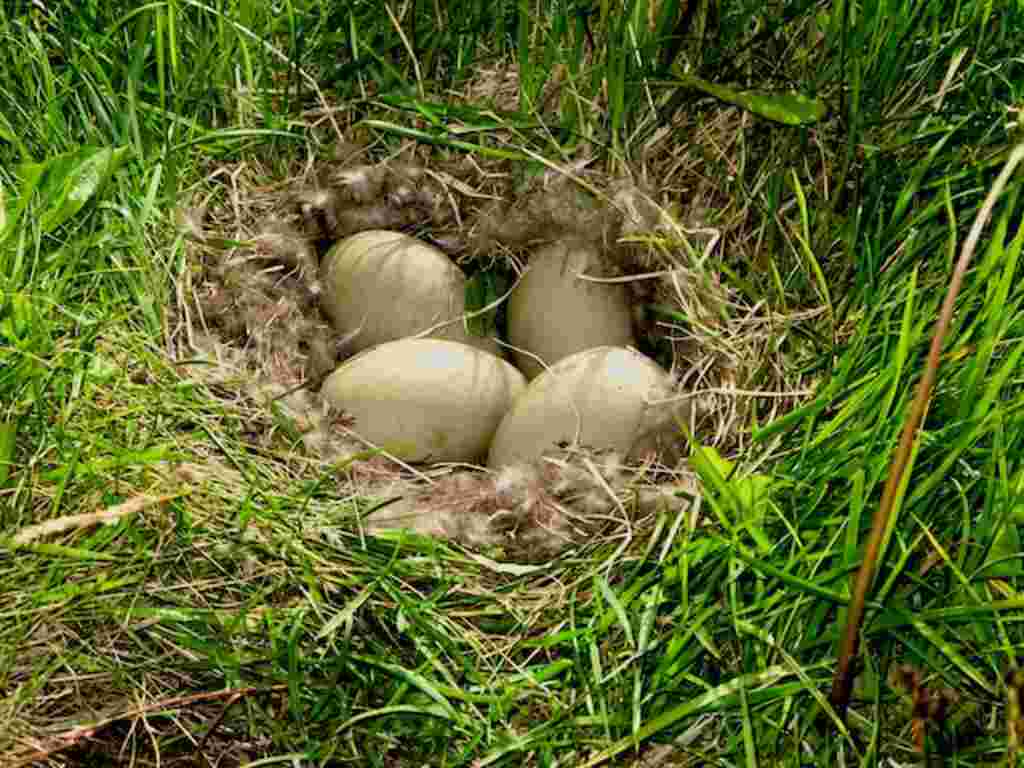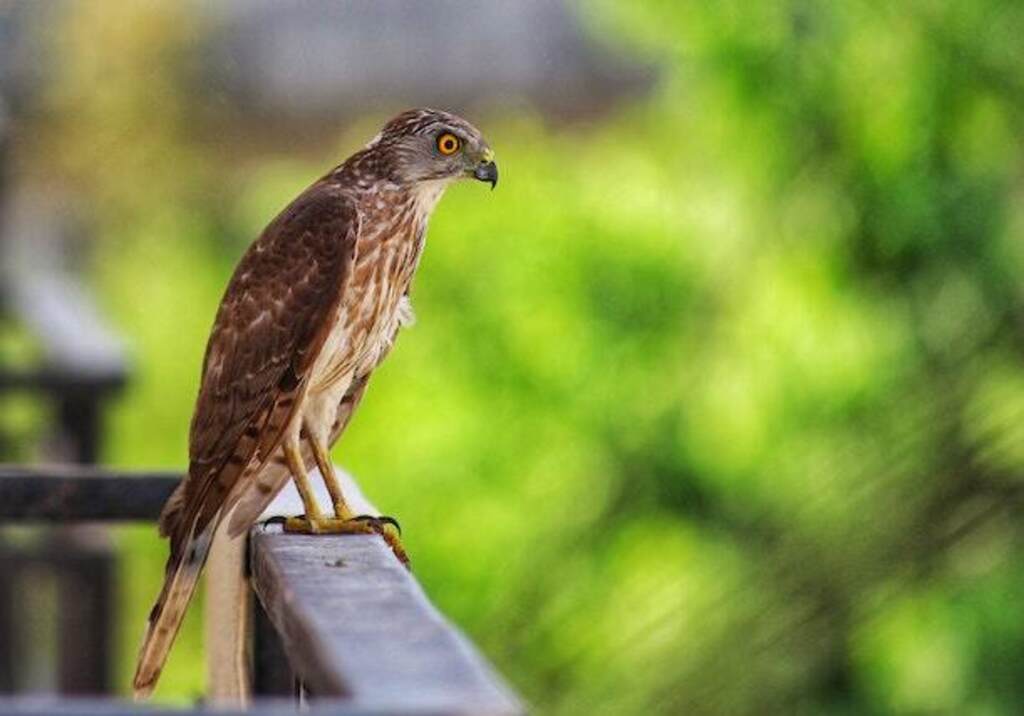Do Hawks Eat Duck Eggs? Prepare to be amazed by the incredible world of these aerial acrobats and their culinary choices!
Hawks, the renowned masters of the sky, renowned for their keen eyesight and sharp talons, have been known to prey on a diverse range of creatures.
Meanwhile, ducks, the graceful swimmers of water bodies, possess a unique egg-laying technique.
Join us as we unveil the captivating tale of hawks, ducks, and the tantalizing mystery surrounding their eggs.
Table of Contents
- 0.1 Explanation of Hawks as Predators
- 0.2 Brief Overview of Duck Eggs as a Food Source
- 0.3 Thesis Statement: Hawks are known to prey on a variety of animals, but do they eat duck eggs?
- 1 Do Hawks Eat Duck Eggs?
- 2 The Diet of Hawks
- 3 Duck Eggs as a Food Source for Hawks
- 4 Predation and Protection Strategies for Ducks and Their Eggs
- 5 Conclusion
- 6 FAQs: Do Hawks Eat Duck Eggs?
- 6.1 Are hawks known to eat duck eggs?
- 6.2 Why would hawks choose duck eggs as prey?
- 6.3 Do hawks specifically search for duck eggs?
- 6.4 How do hawks find and access duck eggs?
- 6.5 Do hawks pose a significant threat to duck populations?
- 6.6 Are there other predators that target duck eggs?
- 6.7 How do ducks protect their eggs from hawks?
- 6.8 Are there any benefits to hawks eating duck eggs?
- 6.9 Can humans intervene to protect duck eggs from hawks?
- 6.10 What can we learn from hawks eating duck eggs?
- 7 Author
Explanation of Hawks as Predators
Hawks are birds of prey that belong to the family Accipitridae. They have sharp talons that they use to catch and kill their prey.
They also have excellent vision which helps them spot their prey from great distances while flying high up in the sky. Hawks hunt during the day, using their keen eyesight to spot their prey from above.
Once they spot their target, they will swoop down at incredible speeds to catch it with their talons. Hawks also have a hooked beak that they use to tear apart their prey once it has been caught.
There are many different species of hawks found all over the world. Some examples include Red-tailed Hawks, Cooper’s Hawks, Sharp-shinned Hawks, and Swainson’s Hawks.
Brief Overview of Duck Eggs as a Food Source
Duck eggs are an important food source for many predators in the animal kingdom including snakes, raccoons, foxes and hawks.
Ducks lay anywhere between 8-12 eggs per clutch depending on species; these eggs provide an important source of protein for predators.
Duck eggs are slightly larger than chicken eggs and have a tougher shell.
They are also higher in fat and protein content compared to chicken eggs. Due to their thicker shell, duck eggs can last longer than chicken eggs if stored properly.
Thesis Statement: Hawks are known to prey on a variety of animals, but do they eat duck eggs?
While hawks are known for preying on a variety of animals, it is not clear whether they specifically target duck eggs as a food source. This raises the question – do hawks eat duck eggs?
In this article, we will explore the diet of hawks and examine whether or not they prey on duck eggs. Understanding the relationship between predators and their prey is an important aspect of ecology.
By examining the hunting habits of hawks, we can gain insight into how these birds interact with other species in their environment. This knowledge can help us better understand the balance of nature in our world.
Do Hawks Eat Duck Eggs?
Yes, hawks do eat duck eggs. Hawks, known for their hunting prowess, have been observed preying on a variety of animals, including duck eggs.The combination of their sharp talons and excellent vision enables them to target and consume these nutrient-rich eggs.
The predation of duck eggs by hawks is a fascinating aspect of their diet, shedding light on the intricate dynamics of predator-prey relationships in nature.
The Diet of Hawks
Hawks are known to be fierce predators, and they have a varied diet that depends on their species, habitat, and availability of prey. Generally, hawks are carnivorous birds that feed on smaller mammals, reptiles, fish, amphibians, and birds.
Some species of hawks also eat insects and fish. The diet of hawks varies according to the season.
For example, during the breeding season or when raising young chicks, hawks often consume more small mammals such as rodents than during the non-breeding season.
Additionally, when prey is scarce or unavailable in one area, hawks may change their hunting strategies or move to another habitat.
Explanation of How Hawks Hunt
Hawks have adapted several hunting strategies that make them highly effective at catching prey. Some species of hawks hunt from high in the sky by soaring over open areas such as fields or wetlands where it is easy to spot their prey.
They use their sharp eyesight to detect small movements on the ground and swoop down to capture their prey with their sharp talons.
Other species of hawks hunt by perching on a high branch or a utility pole and waiting for their prey to come into view.
They then fly down quickly to snatch up their victim before it can escape.
Some hawks also use stealth tactics such as hiding behind foliage or using terrain features to approach unsuspecting prey before attacking them suddenly.
Discussion on How Hawks Choose Their Prey
Hawk’s decision-making process for selecting its next meal can depend upon various factors like habitat availability and food source availability mainly depending upon which type of hawk it is.
However, most often than not they choose based on visual cues such as movement or color contrast rather than smell.
Usually hunters like Red-tailed Hawk select targets based solely on size; however other factors may come into play as well.
For instance, a Red-tailed Hawk would prefer catching a bird or rodent that’s naive enough to rest in the open instead of one that’s hiding under thick vegetation.
Some hawks are known to pick their prey based on diet, choosing animals that have eaten more recently since they’re likely to be strong and healthy.
Another factor is the accessibility of the prey – if the prey is easy to catch, then hawks are more likely to go after it.
Understanding what hawks eat and how they hunt is crucial for understanding their role in nature and how they interact with other species.
Duck Eggs as a Food Source for Hawks
Overview of Duck Eggs
Duck eggs are the eggs laid by female ducks, and they are larger than chicken eggs. They come in various sizes, depending on the breed of duck, but on average, they are about 50% larger than chicken eggs.
They have a thicker and stronger shell compared to chicken eggs. The color of the shell depends on the breed of duck and can range from white to cream, blue-green, or gray.
Ducks lay their eggs in nests, which they build on the ground near water sources such as ponds or streams.
The nests are often lined with feathers or down to provide insulation and warmth for the developing embryos.
Explanation on Why Ducks Lay Eggs
Like other birds, ducks lay eggs as part of their reproductive cycle. Female ducks will lay a clutch of several eggs over a period of several weeks. Once all the eggs have been laid, they will incubate them until they hatch.
Ducks need to lay their eggs in nests that provide adequate protection from predators and other environmental threats such as flooding or extreme weather conditions.
For this reason, they often choose sites close to water sources that offer some level of cover.
Discussion on Nutritional Value of Duck Eggs
Duck eggs are highly nutritious and contain many vital nutrients that our bodies require for optimal health.
They are an excellent source of protein with one large duck egg containing approximately 9 grams of protein.
Additionally, they contain high levels of vitamins A and B12 which support eye health and red blood cell formation respectively.
Duck eggs also contain more fat than chicken eggs which makes them richer in flavor and ideal for cooking certain dishes such as cakes or pastries that require added moisture content.
Overall duck egg is considered a nutritional powerhouse that can contribute greatly to a balanced and healthy diet.
While some people are allergic to duck eggs, for those who can consume them, they offer a wealth of essential nutrients that can support overall health and well-being.
Hawks often prey on duck eggs which provide a highly nutritious food source.
Duck eggs are larger than chicken eggs with a thicker shell and come in various colors depending on the breed of duck.
Ducks lay their eggs in nests that provide adequate protection from predators and environmental threats, and the eggs contain high levels of protein, vitamins A & B12, and fat.
Predation and Protection Strategies for Ducks and Their Eggs
Overview of Predation Risks for Ducks and Their Eggs
Duck eggs are a highly sought-after food source for many predators, including hawks. These predators can pose a significant threat to the survival of duck populations.
For instance, in areas where the duck population is high, there may be an increased risk of predation as hawks will have more available prey.
Additionally, during nesting season, ducks become more vulnerable to predation as they need to stay close to their nests to protect their eggs.
The eggs themselves are also at risk from other animals such as raccoons, skunks, and snakes that may raid nests in search of food.
They can also be stepped on or crushed by larger animals that roam around the area where they are laid.
Explanation on How Ducks Protect Their Eggs from Predators
Ducks have developed several protective strategies over time to help them keep their eggs safe from predators. One way is through nest-building behavior.
The ducks will construct a nest out of grasses or other materials and line it with down feathers that provide insulation and camouflage.
Another strategy is incubation behavior where ducks take turns sitting on their eggs to keep them warm and protected from outside threats.
The incubation period can last up to 28 days depending on the species of duck.
Ducks may also use distraction displays as a defense mechanism against potential predators.
This behavior involves making loud noises or flapping wings in an attempt to draw attention away from the nest towards themselves instead.
Discussion on How Hawks Overcome These Protection Strategies
Hawks have evolved different strategies for overcoming these protective measures taken by ducks. For example, some hawks may use stealth tactics while hunting by waiting until the duck leaves her nest unguarded before swooping in and snatching an egg.
Other hawks may use brute force to break through the nest or even climb trees to reach the eggs. Some hawks may also use their sharp talons to rip through the down feathers and pluck out the eggs.
Hawks are also known to be opportunistic hunters, meaning they will take advantage of any situation that presents itself.
If a duck leaves her nest unattended for a moment, a hawk may quickly swoop in and snatch an egg before she returns.
Hawks pose a significant threat to ducks and their eggs, and it’s essential for ducks to develop protective strategies against these predators.
However, hawks have also evolved different techniques for overcoming these defenses.
The predator-prey relationship between hawks and ducks highlights the importance of understanding ecological interactions in nature.
Conclusion
Summary of Main Points Discussed in the Essay
Throughout this article, we have explored the relationship between hawks and duck eggs. We began by discussing the diet of hawks and how they choose their prey.
We then examined the nutritional value of duck eggs and why they are an attractive food source for hawks.
We also looked at predation risks for ducks and their eggs, as well as protection strategies employed by ducks to defend their eggs.
It is clear that while hawks are primarily meat-eaters, they do occasionally eat duck eggs when they are available.
Despite being a potential food source for predators, ducks continue to lay large batches of eggs on the ground or in nests where it may be difficult to protect them from predation.
Answer to the Thesis Statement: Yes, Hawks Do Eat Duck Eggs.
After examining all available evidence, it is clear that hawks do indeed eat duck eggs. While this is not a frequent occurrence in most cases, it does happen often enough to cause concern for duck populations in certain areas.
Ducks have evolved various mechanisms to protect their eggs from predators such as burying them or laying them in hard-to-reach locations.
However, these defenses can only go so far against determined predators like hawks who may be able to overcome these defenses with ease.
Final Thoughts on the Importance of Understanding Predator-Prey Relationships in Nature
While understanding predator-prey relationships can be challenging given their complex nature, it is important that we continue researching these interactions if we hope to preserve biodiversity and wildlife populations around us.
By learning more about how predators interact with their prey species like ducks and their eggs, we can better understand how these animals coexist within ecosystems as well as identify ways we can work towards protecting both predator and prey populations from each other’s impacts.
In the end, understanding predator-prey relationships in nature can help us create a better world for all living beings that inhabit it.
FAQs: Do Hawks Eat Duck Eggs?
Are hawks known to eat duck eggs?
Yes, hawks do eat duck eggs. These birds of prey have been observed targeting and consuming duck eggs as part of their diet.
Why would hawks choose duck eggs as prey?
Hawks are attracted to duck eggs because they provide a nutrient-rich food source. The eggs are larger, contain more fat and protein, and offer a substantial meal for these formidable predators.
Do hawks specifically search for duck eggs?
While hawks primarily prey on a variety of animals, including small mammals and birds, they do opportunistically target duck eggs when available. Ducks’ nesting habits and egg vulnerability make them an occasional target.
How do hawks find and access duck eggs?
Hawks rely on their exceptional eyesight to locate nests or ground-laid duck eggs. They may use various hunting strategies, such as swooping down from the sky or climbing trees, to reach the eggs.
Do hawks pose a significant threat to duck populations?
While predation of duck eggs by hawks occurs, it typically does not pose a major threat to overall duck populations. Ducks have developed protective behaviors and nesting strategies to minimize predation risks.
Are there other predators that target duck eggs?
Yes, besides hawks, other animals such as raccoons, snakes, and skunks also prey on duck eggs. These predators pose additional challenges for ducks in successfully hatching their eggs.
How do ducks protect their eggs from hawks?
Ducks employ various protective strategies, including selecting nesting sites near water bodies, building nests with insulation and camouflage, and taking turns incubating the eggs to deter potential predators.
Are there any benefits to hawks eating duck eggs?
The predation of duck eggs by hawks serves as a natural check and balance in ecosystems. It helps regulate duck populations and contributes to the intricate dynamics of predator-prey relationships in nature.
Can humans intervene to protect duck eggs from hawks?
While it is possible to implement measures to protect duck eggs from predation, it is crucial to strike a balance and allow natural processes to unfold. Conservation efforts often focus on preserving habitats and promoting biodiversity.
What can we learn from hawks eating duck eggs?
Studying the predation habits of hawks, including their consumption of duck eggs, enhances our understanding of ecological interactions and the delicate balance of nature. It highlights the interconnectedness of species and the role predators play in shaping ecosystems.

